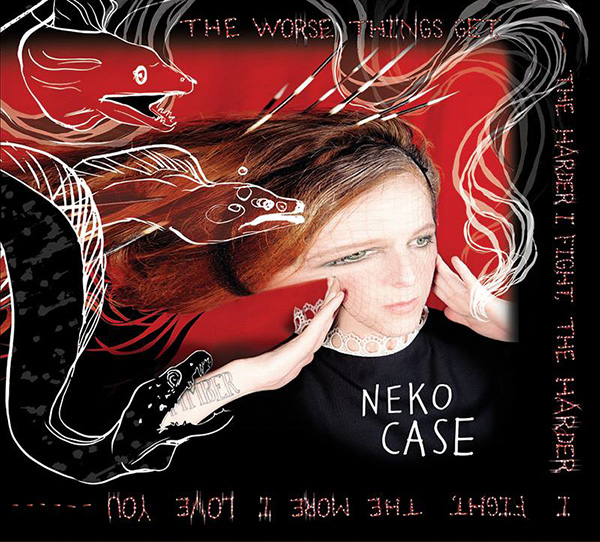
“You didn’t know what a man was until I showed you,” singer-songwriter Neko Case taunts on her new album “The Worse Things Get, The Harder I Fight, The Harder I Fight, The More I Love You.” Case may be a feminist, but women’s equality is not a major concern on “The Worse Things Get,” a confessional album if ever one existed. Instead, Case puts her wit to other purposes, with generally unsatisfying results.
Filled with cryptic lyrics delivered in pensive and aggressive tones, Case’s flair for sticky pop tends to be undermined by contrived avant-garde flourishes. On “The Worse Things Get,” such shadings distract more than they enrich — jaunty jingles become dull musings. The track “Wild Creatures” ensnares listeners with pleasant distortion but alienates them with the overwrought line, “When you catch the light/There’s a flash of wild creatures/For the Stone Age of the preachers/And the husbands and the wife.” This isn’t an intellectually complex sentiment so much as a belabored metaphor, and it reminds the listener that great lyrics don’t need to be great poetry.
Elsewhere, on “Night Still Comes,” a somber Case laments “There are so many tools that are made from my hands/But the tide smashes all my best-laid plans to sand.” In such moments, Case evocatively conveys disappointment, but at other times — “If I puked up some sonnets, would you call me a miracle?” — her questions do not feel worth asking or considering. The shift from the melancholy to the rhetorical is more disenchanting than intriguing.
Case does create something gorgeous when not distracted by clutter and complexity. Her words are filled unmistakably with longing when she conveys a love that feels older and stronger than it may actually be. On “Calling Cards,” she wearily sighs “You made me think there was something coming/Someday worth waiting for.” The implication that “Someday worth waiting for” will never come makes it all the more touching and heartbreaking. Here, at least, Case captures some of the loneliness that haunts iconic, emotive bands like Nirvana. She only reaches that pitch for a few moments, but those notes are exhilarating.
Even at her strongest moments, Case weaves melancholy and ennui into a musical web reminiscent of Joni Mitchell. At her worst, she has more in common with maudlin artists such as Taylor Swift, and the two would likely be indistinguishable if Swift were also fond of power punk. Case excels within her limitations and falters when she attempts to move beyond them. Then again, it isn’t surprising that she would try to do so. Just as the album’s title would suggest, Case tries harder the more challenging things become, and one can’t help but applaud her tenacity.
A version of this article appeared in the Tuesday, Sept. 3 print edition. Chris Feldsine is a contributing writer. Email him at [email protected].




















































































































































